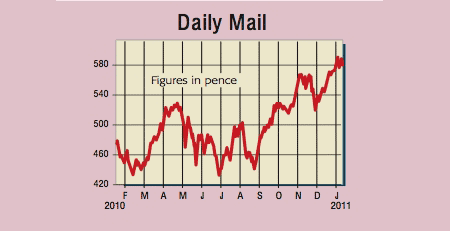
Who would want to own a newspaper? Income is derived from two areas, advertising and circulation, both of which are being eroded by digital media. Readership levels are gradually falling due to consumers wanting free real-time news on tap 24 hours a day. I’ve even stopped taking hard copies of the FT and The Daily Telegraph in favour of reading the online versions. And many in the younger generation just can’t see the point of buying out-of-date content that isn’t as much fun as surfing the web.
Once unit sales decline below a set level, critical mass will become a major issue. A vicious circle may emerge in which advertisers drop out, which hits investment, resulting in poor-quality editorials, which in turn hits circulation and advertising. A solution adopted by The Times is to charge for web access. Yet this is only likely to accelerate the decline of print. To compound the problem, mobile advertising is on the horizon. With the popularity of smartphones, tablets and location-based devices, printed advertisements will soon carry even less clout. Like the video cassette and the CD, the regional and national dailies face an inevitable ‘death of a thousand cuts’. It’s just a matter of how long it will take.
So what about DMGT, the owner of the Daily Mail, Metro and the Evening Standard? Well, it is at least better off than many of its rivals, as its circulation levels have held up remarkably well. And this diversified group is also active in magazine publishing, analytics, risk assessment for the insurance sector, and exhibitions. It also owns valuable internet real estate. All told, and perhaps somewhat surprisingly given its name, 64% of operating profits are now in fact derived from business-to-business (B2B) activities. However, advertising still accounts for a fair slug of the income, thus making it prone to another downturn.
Daily Mail Group (LSE: DMGT), rated a BUY by RBS
The City expects 2011 revenues and EBITA to come in at around £2.0bn and £325m respectively. The stock is set to pay a 17.1p dividend (equivalent to a 3% yield). I would rate the B2B and newspapers units on corresponding EBITA multiples of ten and seven times. Adjusting for the £862m of net debt, £30m per year of central costs, and a £271m pension deficit, I get a worth of around £4.70 a share.
Recommendation: SELL at 570p
Paul Hill also writes a weekly share-tipping newsletter, Precision Guided Investments. See
www.moneyweek.com/PGI
, or phone 020-7633 3634.